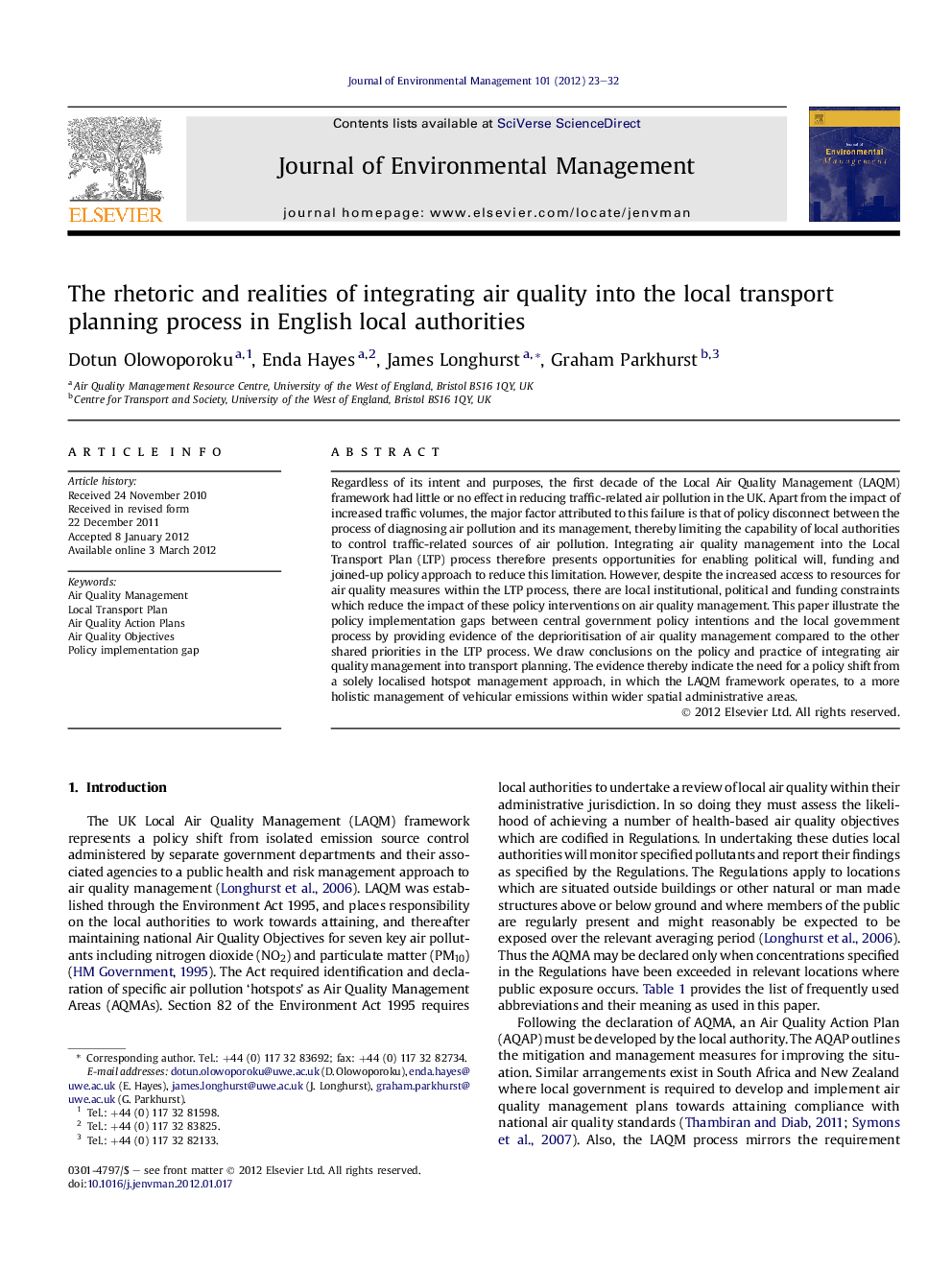| Article ID | Journal | Published Year | Pages | File Type |
|---|---|---|---|---|
| 1056832 | Journal of Environmental Management | 2012 | 10 Pages |
Regardless of its intent and purposes, the first decade of the Local Air Quality Management (LAQM) framework had little or no effect in reducing traffic-related air pollution in the UK. Apart from the impact of increased traffic volumes, the major factor attributed to this failure is that of policy disconnect between the process of diagnosing air pollution and its management, thereby limiting the capability of local authorities to control traffic-related sources of air pollution. Integrating air quality management into the Local Transport Plan (LTP) process therefore presents opportunities for enabling political will, funding and joined-up policy approach to reduce this limitation. However, despite the increased access to resources for air quality measures within the LTP process, there are local institutional, political and funding constraints which reduce the impact of these policy interventions on air quality management. This paper illustrate the policy implementation gaps between central government policy intentions and the local government process by providing evidence of the deprioritisation of air quality management compared to the other shared priorities in the LTP process. We draw conclusions on the policy and practice of integrating air quality management into transport planning. The evidence thereby indicate the need for a policy shift from a solely localised hotspot management approach, in which the LAQM framework operates, to a more holistic management of vehicular emissions within wider spatial administrative areas.
► We examined the integration of air quality management into the LTP2 process in England. ► We studied policy implementation gaps within and between different tiers of government. ► Integration facilitate operational improvement of air quality management at the local level. ► Importance given to air quality is low when compared to other shared priorities in LTP2.
